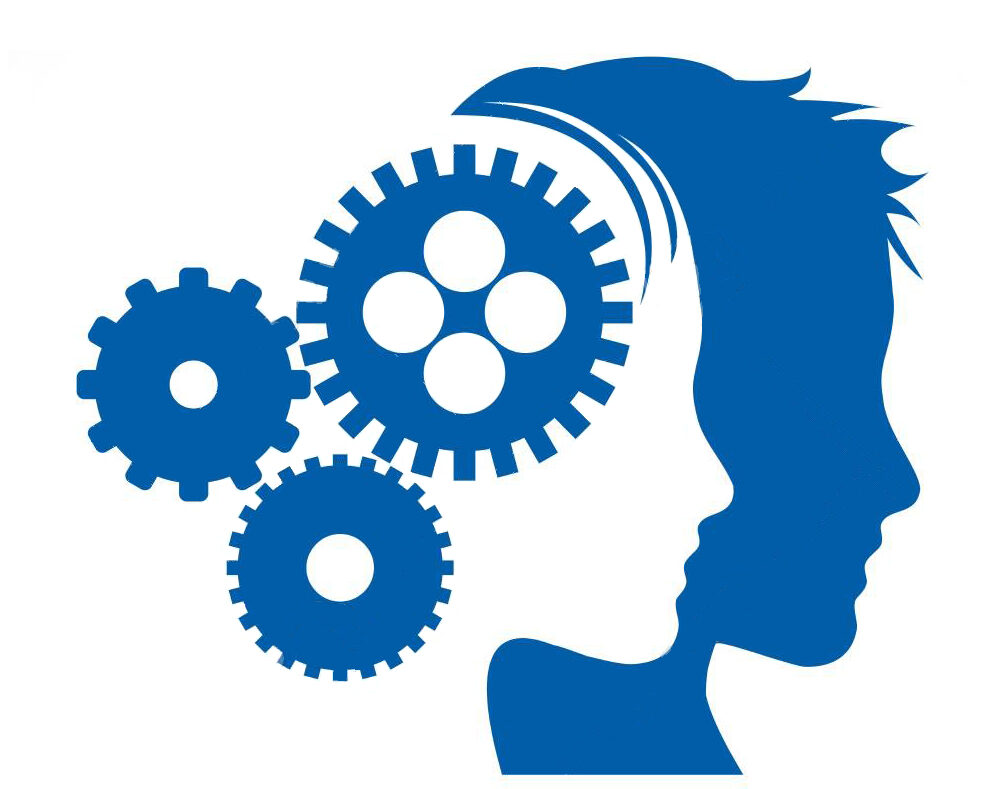Are you ready to embark on a journey of self-discovery and personal growth? Look no further! In this article, you will find a compilation of 20 thought-provoking self-reflection questions that are designed to deepen your understanding of yourself, enhance your self-awareness, and ignite positive change. By taking a moment to reflect on these questions, you’ll be empowered to cultivate a stronger sense of self, uncover hidden passions, and unlock your full potential. So, grab a pen, get comfortable, and get ready to embark on an enlightening self-reflection adventure!
Personal Goals
Current Goals
As an individual, it is important to have personal goals that give direction and purpose to your life. Currently, you may have a variety of goals that you are working towards. These could include goals related to your career, relationships, health and well-being, learning and education, finances, and personal values. It is essential to regularly assess and review these goals to ensure that they are still aligned with your desires and aspirations.
To begin, ask yourself questions such as:
- What are my current goals?
- Are they specific and measurable?
- Are they challenging but attainable?
- How do these goals contribute to my overall happiness and fulfillment?
By reflecting on your current goals, you can gain clarity and make any necessary adjustments to ensure that you are on the right path towards achieving them.
Long-Term Goals
In addition to your current goals, it is also important to consider your long-term goals. These are the goals that may span several years or even decades. Long-term goals provide a vision for your future and help you make choices that align with your values and aspirations.
When thinking about your long-term goals, ask yourself questions such as:
- Where do I see myself in the next five, ten, or twenty years?
- What achievements do I want to accomplish?
- How do I want to grow personally and professionally?
By setting long-term goals, you give yourself a roadmap for success and ensure that your actions and decisions are working towards your ultimate vision.
Work and Career
Job Satisfaction
Job satisfaction is a vital aspect of your overall well-being, as you likely spend a significant amount of your waking hours at work. Reflecting on your job satisfaction can help you gauge whether you are on the right career path or if there are changes you need to make.
Consider asking yourself questions like:
- Am I happy in my current job?
- Do I find meaning and fulfillment in my work?
- Am I utilizing my skills and talents to the best of my abilities?
By honestly assessing your job satisfaction, you can identify areas for improvement or potentially consider exploring new career opportunities that better align with your passions and interests.
Skills and Development
Continuously learning and developing new skills is essential for personal and professional growth. Reflecting on your skills and development allows you to identify areas where you can improve and invest in yourself.
Ask yourself questions such as:
- What skills do I currently possess?
- Are there any skills I would like to develop or improve?
- How can I enhance my skills to advance in my career or pursue new opportunities?
By prioritizing your skills development, you not only become more valuable in your current role but also open doors for future growth and success.
Relationships
Family and Friends
The relationships you have with your family and friends play a significant role in your overall happiness and well-being. Reflecting on these relationships allows you to assess their strength and identify areas for improvement or growth.
Consider asking yourself questions like:
- How would I describe my relationships with my family and friends?
- Do I invest enough time and effort in nurturing these relationships?
- Are there any unresolved conflicts or issues that need addressing?
By reflecting on your family and friendships, you can cultivate stronger connections, improve communication, and foster a support system that enriches your life.
Romantic Relationships
Romantic relationships bring their own set of joys and challenges. It is important to regularly reflect on your romantic relationships to ensure they are healthy, fulfilling, and aligned with your values.
Ask yourself questions such as:
- How satisfied am I in my romantic relationship?
- Are my needs being met, and am I meeting the needs of my partner?
- Are there areas of improvement that could enhance our relationship?
By engaging in honest self-reflection and open communication with your partner, you can strengthen your bond and create a loving and supportive partnership.
Health and Well-being
Physical Health
Taking care of your physical health is essential for leading a fulfilling and vibrant life. By reflecting on your physical health, you can identify areas where you can make positive changes or seek professional guidance.
Consider asking yourself questions like:
- How would I rate my overall physical health?
- Am I engaging in regular exercise and maintaining a balanced diet?
- Are there any health concerns that require attention or medical advice?
By prioritizing your physical health through exercise, proper nutrition, and regular check-ups, you can increase your energy levels, reduce the risk of illness, and enhance your overall well-being.
Mental and Emotional Health
Your mental and emotional well-being are equally important as your physical health. Reflecting on your mental and emotional state allows you to identify any areas of stress, anxiety, or emotional growth that you may need to address.
Ask yourself questions such as:
- How would I describe my mental and emotional well-being?
- Am I effectively managing stress and practicing self-care?
- Are there any unresolved emotions or traumas that require attention?
By prioritizing self-care activities, seeking support from trusted professionals or loved ones, and engaging in practices such as mindfulness or therapy, you can cultivate emotional resilience and mental clarity.

Past Experiences
Significant Life Events
Looking back on significant life events can provide meaningful insights and lessons for personal growth. Reflecting on these events allows you to acknowledge your growth, resilience, and the impact they have had on shaping your present self.
Consider asking yourself questions like:
- What are the most significant events or milestones in my life so far?
- How have these events shaped my values, beliefs, and outlook on life?
- What lessons have I learned from overcoming challenges or embracing opportunities?
By reflecting on your past experiences, both positive and negative, you can gain a deeper understanding of yourself and make informed choices for your future.
Lessons Learned
Every experience, whether big or small, offers an opportunity for growth and learning. Reflecting on the lessons you have learned allows you to integrate them into your daily life and avoid repeating past mistakes.
Ask yourself questions such as:
- What are the most valuable lessons I have learned in my life?
- How have these lessons influenced my decision-making and actions?
- What changes have I made based on these lessons?
By embracing a mindset of continuous learning and self-improvement, you can navigate life’s challenges with greater wisdom and resilience.
Learning and Education
Academic Pursuits
Whether you are currently a student or have already completed your formal education, reflecting on your academic pursuits helps you assess your knowledge, skills, and the desire to pursue further education.
Consider asking yourself questions like:
- What are my academic achievements and areas of expertise?
- Have I pursued any additional certifications or degrees?
- Do I have a desire to continue my education in a specific field?
By reflecting on your academic pursuits, you can identify potential opportunities for further learning, whether through professional development courses or advanced degrees, to expand your knowledge and expertise.
Continuous Learning
Learning should be a lifelong journey, extending beyond formal education. Reflecting on your commitment to continuous learning helps you enhance your personal and professional growth.
Ask yourself questions such as:
- How do I actively engage in continuous learning in my daily life?
- Do I seek out new knowledge and skills outside of my immediate field of expertise?
- What are some areas where I would like to further develop my understanding?
By embracing a mindset of continuous learning, you open yourself up to new perspectives, ideas, and growth opportunities that can enrich your life and broaden your horizons.

Finances
Financial Goals
Financial goals are essential for creating stability and freedom in your life. Reflecting on your financial goals helps you assess your current financial situation and make informed decisions to shape your future.
Consider asking yourself questions like:
- What are my short-term and long-term financial goals?
- How am I currently managing my finances?
- What steps can I take to reach my financial goals?
By setting specific financial goals and developing a plan to achieve them, you can create a solid foundation for financial well-being and ensure a secure future.
Budgeting and Savings
Engaging in effective budgeting and saving practices is crucial for financial success. Reflecting on your budgeting and savings habits allows you to evaluate your spending patterns and make necessary adjustments to meet your financial goals.
Ask yourself questions such as:
- Am I currently budgeting and saving effectively?
- How can I optimize my expenses and increase savings?
- What are some financial habits I can develop to ensure financial stability?
By tracking your expenses, creating a budget, and adopting healthy saving habits, you can take control of your financial future and build a solid financial foundation.
Personal Values
What Matters Most
Identifying your personal values is essential for living an authentic and purposeful life. Reflecting on what matters most to you allows you to align your actions and decisions with your core values.
Consider asking yourself questions like:
- What are my most important values?
- How do these values guide my choices and actions?
- Are there any areas of misalignment between my values and my current lifestyle?
By reflecting on what matters most to you, you can make intentional choices that align with your authentic self, leading to a greater sense of fulfillment and happiness.
Aligning Actions with Values
Living in alignment with your values is crucial for maintaining personal integrity and a sense of purpose. Reflecting on whether your actions are aligned with your values helps you maintain authenticity and make any necessary adjustments.
Ask yourself questions such as:
- Am I consistently living in alignment with my values?
- Are there any areas where I am compromising my values?
- How can I prioritize actions that reflect my values in all areas of my life?
By actively aligning your actions with your values, you cultivate a sense of purpose and live a more meaningful life.
Time Management
Prioritization
Effectively managing your time and prioritizing tasks is essential for productivity and overall well-being. Reflecting on your time management habits allows you to evaluate how you allocate your time and make necessary adjustments.
Consider asking yourself questions like:
- How do I currently prioritize tasks and manage my time?
- Am I allocating enough time to activities that truly matter to me?
- Are there any areas where I am wasting time or engaging in unproductive habits?
By reflecting on your time management habits, you can identify opportunities for improvement, establish healthy routines, and optimize your productivity.
Productivity Improvements
Enhancing your productivity is beneficial for achieving your goals and maximizing your potential. Reflecting on your current productivity levels allows you to identify areas where you can improve and adopt effective strategies.
Ask yourself questions such as:
- How would I rate my current level of productivity?
- Are there any time-wasting habits or distractions I need to address?
- What strategies can I implement to increase my efficiency and effectiveness?
By adopting productivity techniques such as setting goals, managing distractions, and planning your time effectively, you can accomplish more in less time and experience a greater sense of accomplishment.
Self-Reflection Habits
Journaling
Journaling is a powerful self-reflection tool that allows you to process your thoughts, emotions, and experiences. Reflecting on your journaling habits helps you assess whether you are using this tool effectively and how it impacts your personal growth.
Consider asking yourself questions like:
- Do I currently engage in regular journaling?
- How does journaling benefit my self-reflection and personal growth?
- Are there any areas where I can deepen my journaling practice?
By incorporating journaling into your routine and exploring different techniques such as gratitude journaling or goal setting, you can gain clarity, process emotions, and foster self-awareness.
Seeking Feedback
Seeking feedback from trusted individuals is an invaluable way to gain different perspectives and identify areas for growth. Reflecting on your feedback-seeking habits helps you assess whether you actively seek feedback and make use of it to improve.
Ask yourself questions such as:
- How open am I to receiving feedback from others?
- Do I actively seek feedback in various areas of my life?
- How do I use feedback to make positive changes?
By embracing feedback and actively seeking it from mentors, colleagues, friends, or family members, you can accelerate your personal growth and continuously improve in all areas of your life.
In conclusion, self-reflection is a powerful tool for personal growth and development. By regularly reflecting on your current goals, work and career, relationships, health and well-being, past experiences, learning and education, finances, personal values, time management, and self-reflection habits, you can gain a deeper understanding of yourself and make intentional choices that align with your values and aspirations. Whether through journaling, seeking feedback, or asking yourself meaningful questions, engaging in self-reflection allows you to cultivate self-awareness and create a more fulfilling and purposeful life.








